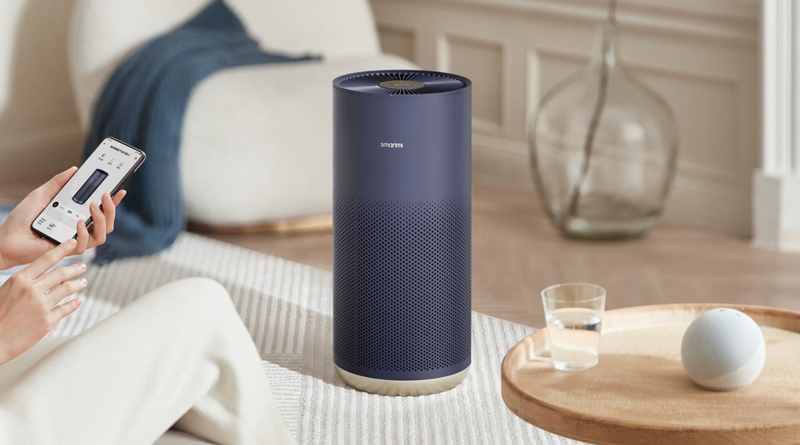In recent years, the importance of indoor air quality has become increasingly recognized, leading to a surge in the popularity of air purifiers. As people spend a significant amount of time indoors, whether at home, work, or other enclosed spaces, ensuring clean air is crucial for maintaining health and well-being. Air purifiers, once considered a luxury, have now become essential appliances in many households and workplaces B-MOLA 温哥华. This article delves into the reasons behind their growing demand, the technology behind them, and their benefits.
Why Air Purifiers?
Health Concerns: The primary driver for the rise in air purifier use is health. Poor indoor air quality can exacerbate respiratory issues such as asthma and allergies. With pollutants, allergens, and airborne pathogens becoming more prevalent, air purifiers serve as a defense mechanism, filtering out harmful particles and providing cleaner air.
Environmental Factors: Urbanization and industrialization have led to increased pollution levels, making it imperative to have clean indoor air. Additionally, climate change has resulted in more frequent and severe wildfires, releasing vast amounts of smoke and particulates into the atmosphere. Air purifiers help mitigate the impact of these environmental hazards by removing smoke and particulate matter from the air.
Pandemic Awareness: The COVID-19 pandemic has heightened awareness of airborne viruses and bacteria. Air purifiers with HEPA (High-Efficiency Particulate Air) filters can capture particles as small as 0.3 microns, effectively reducing the concentration of airborne pathogens and contributing to a safer indoor environment.
How Do Air Purifiers Work?
Air purifiers utilize various technologies to clean the air, with the most common being:
HEPA Filters: These filters are highly efficient at capturing small particles, including dust, pollen, and pet dander. HEPA filters can trap particles as small as 0.3 microns with 99.97% efficiency, making them a popular choice for those with allergies or respiratory conditions.
Activated Carbon Filters: These filters are effective at removing odors, gases, and volatile organic compounds (VOCs) from the air. Activated carbon filters work by adsorbing these substances onto their large surface area, making them ideal for eliminating cooking smells, smoke, and chemical fumes.
UV-C Light: Some air purifiers incorporate UV-C light to kill bacteria, viruses, and mold spores. UV-C light damages the DNA and RNA of microorganisms, rendering them harmless. This technology is particularly beneficial in medical settings and homes with individuals susceptible to infections.
Ionizers: Ionizers release negatively charged ions into the air, which attach to positively charged particles like dust and allergens. These charged particles then clump together and fall out of the air or get captured by an electrostatic filter. However, ionizers can produce ozone, a potential respiratory irritant, so they should be used with caution.
Benefits of Air Purifiers
Improved Respiratory Health: By removing pollutants, allergens, and pathogens, air purifiers can significantly improve respiratory health. This is especially beneficial for individuals with asthma, allergies, or other respiratory conditions.
Enhanced Sleep Quality: Clean air can lead to better sleep quality. Air purifiers reduce airborne irritants that can cause congestion and discomfort, allowing for more restful sleep.
Odor Removal: Air purifiers with activated carbon filters are excellent at eliminating unpleasant odors from cooking, pets, smoke, and other sources, creating a more pleasant indoor environment.
Reduction of Indoor Pollutants: In addition to allergens, air purifiers can reduce indoor pollutants such as VOCs, which are emitted by household products like paints, cleaning supplies, and furniture. This contributes to a healthier living space.
Allergen Control: For pet owners, air purifiers help control pet dander and hair, reducing the risk of allergic reactions and keeping the home cleaner.
Choosing the Right Air Purifier
When selecting an air purifier, consider factors such as room size, the specific needs of the household (e.g., allergies, asthma, pet ownership), and the type of pollutants to be addressed. Look for models with certified HEPA filters, low noise levels, and energy efficiency. Additionally, check for features like filter replacement indicators, multiple fan speeds, and smart connectivity for added convenience.
